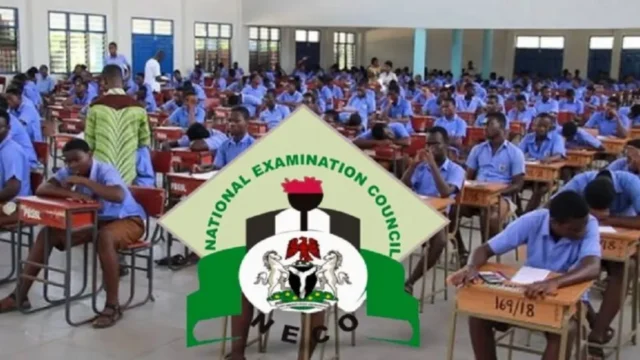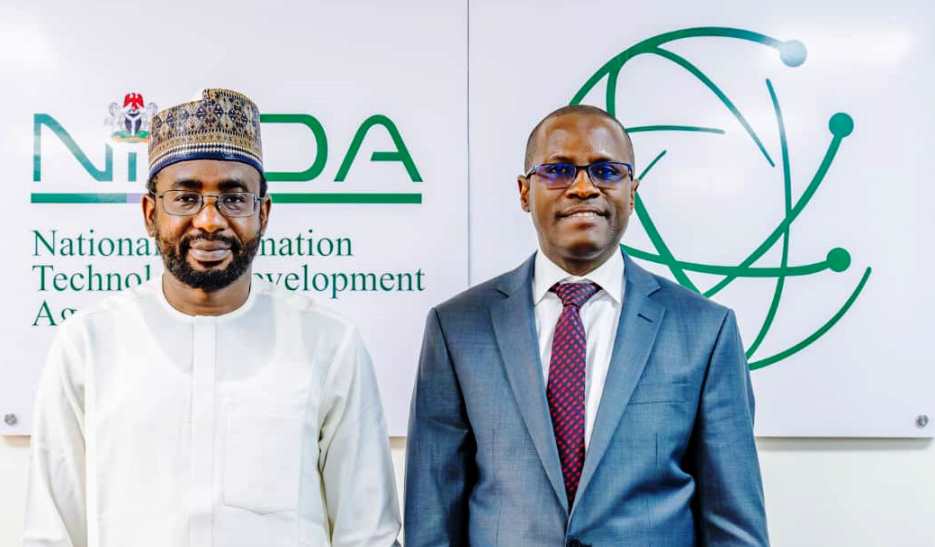In a move drawing attention across Nigeria and the broader West African region, the House of Representatives has officially called for a thorough investigation into the National Examinations Council (NECO). This decision comes in the wake of concerns over NECO’s alleged unauthorized virement—essentially, the possible shifting of budgeted funds without proper legislative approval—and the overall management of its budget from 2023 through 2025.
The resolution was passed following a motion presented by Hon. Amobi Godwin Ogah during Thursday’s plenary session. He invoked Sections 88 and 89 of Nigeria’s 1999 Constitution (as amended), underscoring the National Assembly’s power to compel federal agencies and parastatals to submit documents and provide accountability. “It is critical that agencies entrusted with public funds demonstrate transparency to both the legislature and the citizens they serve,” Ogah emphasized during the session, echoing sentiments of accountability and open governance.
NECO, known for conducting national examinations across Nigeria, has consistently generated substantial internally generated revenue (IGR) for the federation. However, as public watchdogs and education stakeholders note, any cloud of suspicion around such a crucial institution can undermine public trust in the education sector. “Accountability from educational bodies is non-negotiable,” said Lagos-based education analyst Dr. Fisayo Bello, “which is why this investigation resonates beyond lawmakers and touches directly on the lives of students and parents.”
What Sparked the NECO Investigation?
According to Hon. Ogah, the National Assembly’s oversight functions require constant access to clear and comprehensive reports on budget performance and revenue management. He alleged that NECO had been implementing virements—shifting funds from one budget line to another—without seeking legislative approval as legally required. “Such actions, if confirmed, represent a serious breach of constitutional provisions and the oversight role mandated to the House of Representatives,” Ogah argued.
In his motion, Ogah further stressed the importance of transparency on several fronts. He called on NECO to present detailed documentation, including:
- Full budget and IGR performance reports from 2023 to date
- Bank statements covering the same period
- Evidence of remittance of generated revenues into the national treasury
“It must also peruse NECO’s bank statements of account from 2023 to date. NECO must also provide evidence of remittance to the federation account for the same period,” Ogah specified, referencing the legislature’s commitment to evidence-driven oversight.
What is a Virement—And Why is it Controversial?
Virement is a technical financial term meaning the reallocation of funds within an established budget. While it may be allowed under certain circumstances, Nigerian public finance law requires that all virements within government agencies must be approved by the National Assembly. This policy is designed to prevent misuse or diversion of public monies and to ensure that intended projects or sectors are not deprived of funds. Unapproved virements can spark controversy as they may point to gaps in oversight or deliberate circumvention of checks and balances.
“Strict observance of virement procedures is at the heart of credible public financial management,” explained Abuja-based governance consultant Amarachi Eze. “It is not just a procedural matter; it protects the interests of citizens and upholds the law.”
House Committee Assignment and Timeline
Acting swiftly, the House directed its Committee on Basic Education Examination Bodies to launch a comprehensive investigation into the alleged unapproved virements within NECO, especially regarding the 2025 implementation. The committee has also been tasked with scrutinizing NECO’s budget implementation, IGR performance, and all related financial records for the years 2023 onward.
In addition, the committee is expected to:
- Probe how NECO has utilized its budget allocations and IGR in recent years
- Review bank statements and evidence of remittances
- Summon relevant NECO officials for clarification and testimony as needed
The House stipulated a three-week window for the committee to complete its probe and report back its findings. This tight timeline signals a sense of urgency as well as public demand for swift action and resolution.
Broader Context: Oversight and Accountability in Nigerian Education
The need for financial and operational accountability in Nigeria’s education sector is not new. Over the past decade, multiple agencies—including the Universal Basic Education Commission (UBEC) and Joint Admissions and Matriculations Board (JAMB)—have faced similar audits and probes, often sparked by allegations ranging from budget mismanagement to fundraising irregularities.
NECO, for its part, plays a critical role in shaping the academic future of millions of secondary school students nationwide. Over 1.2 million candidates participated in NECO’s Senior Secondary Certificate Examinations in 2023 alone, according to official figures. Thus, any concerns about mismanagement or opacity can have cascading impacts on students, teachers, and educational infrastructure, particularly in underserved communities.
In neighbouring countries such as Ghana and Liberia, examination councils are also held to high standards of public scrutiny, highlighting how education governance is a regional concern across West Africa. According to Accra-based policy expert Kweku Mensah, “Lessons from Nigeria’s oversight process can inform best practices across the subregion, especially as we work towards harmonizing examination standards and protecting the integrity of our education systems.”
Reactions and What’s Next
Public responses to the House’s investigation have been wide-ranging. Some advocacy groups, like the Education Rights Campaign (ERC), welcomed the probe but urged lawmakers to extend their review to similar agencies and ensure their findings are publicly released. “Transparency and consequences for wrongdoing are necessary if we hope to restore trust in our institutions,” ERC Lagos coordinator Mrs. Mariam Ajibola told reporters.
NECO officials have not yet issued a formal statement, but in the past, the agency has maintained that its financial operations follow established governmental processes. Watchers are keenly awaiting both NECO’s response and the outcome of the committee’s investigation, citing the precedent for future oversight in the sector.
For many Nigerians and West Africans—students, parents, teachers, and education professionals—the probe is more than just a bureaucratic process. It is a test of the nation’s commitment to good governance and a transparent public sector, which in turn impacts educational quality, access, and equity.
Conclusion: Strengthening Oversight for the Future
As the House committee’s investigation unfolds, sector stakeholders hope it will illuminate the state of oversight in Nigeria’s examination bodies and set new benchmarks for accountability. Locally, this inquiry could lead to stronger legal safeguards and improved budgeting standards, while regionally it may inspire similar reviews and reforms.
Maintaining transparent, well-governed education agencies is vital for national development and for positioning West Africa as a leader in educational standards on the continent. Cases like NECO’s serve as reminders of the collective responsibility of government, institutions, and civil society to demand transparency and uphold the public trust.
Do you think the House of Representatives’ probe will improve education governance in Nigeria? How can citizens and stakeholders help push for greater accountability? Drop your comment below and follow us for more updates on this story and others shaping our society!
Have a story you want to share or sell? We’d love to hear from you! Email us at story@nowahalazone.com to get your story featured or discuss story sales.
For general support or to contribute tips, reach out at support@nowahalazone.com.
Stay connected for the latest news and updates by following us on Facebook, X (Twitter), and Instagram.
Your perspective matters—join the conversation today!










